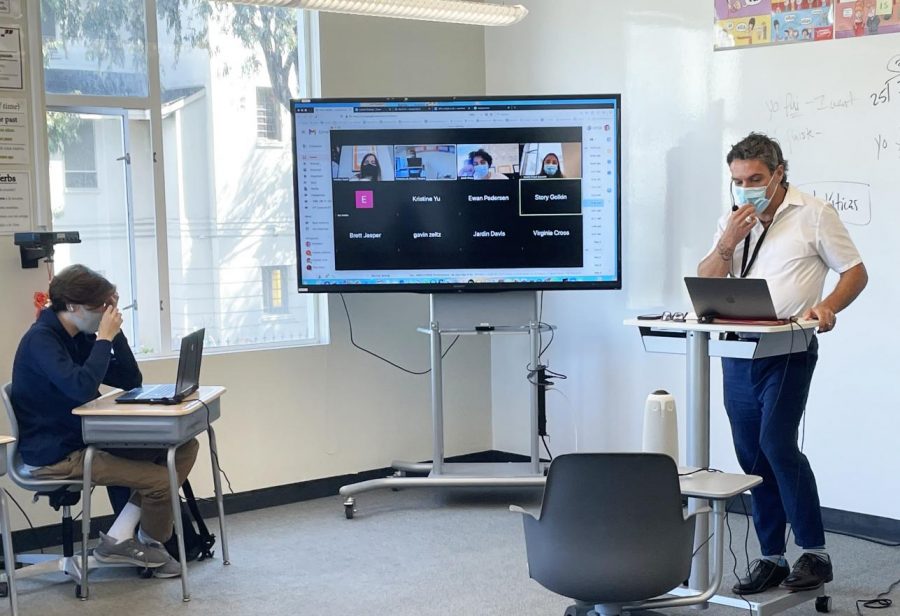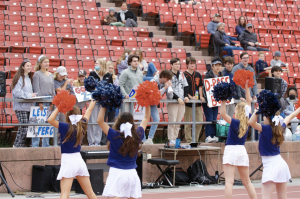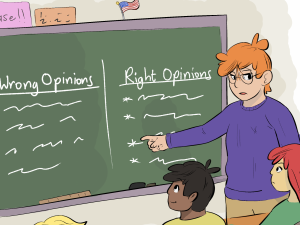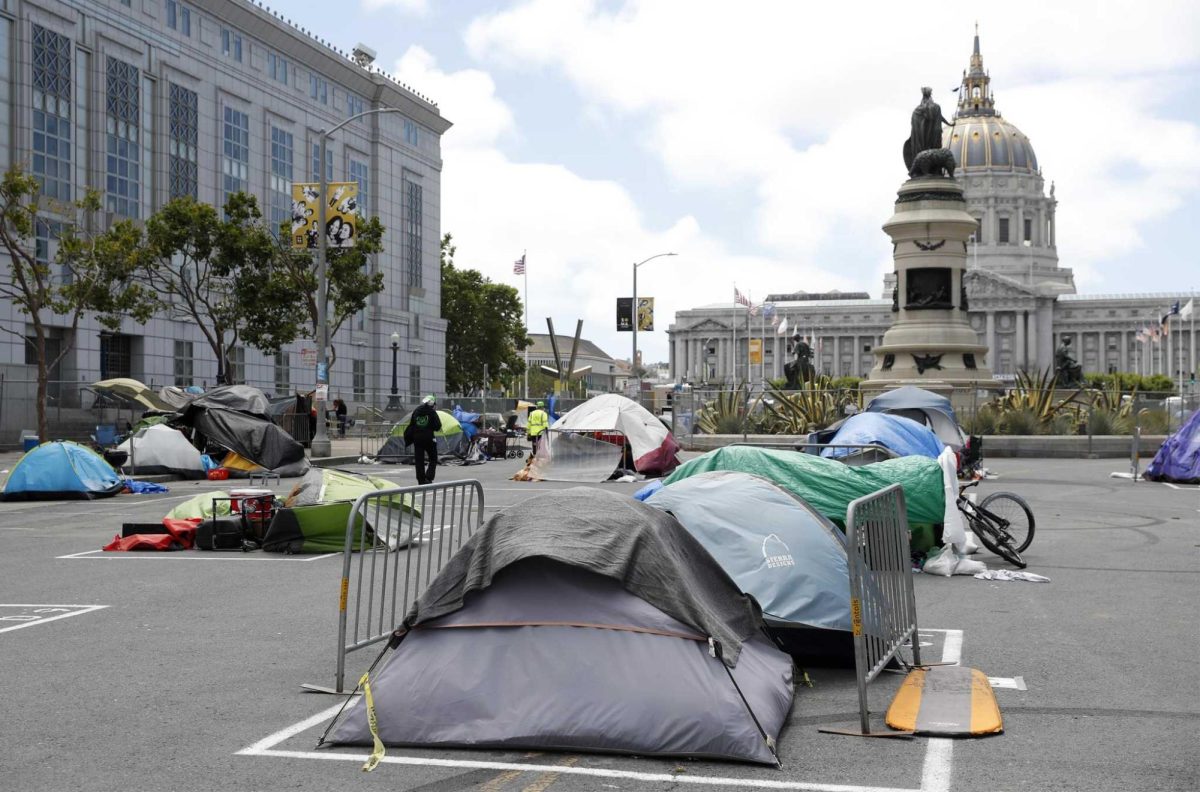School to implement changes next year
Students can expect new schedule, iPads
Spanish teacher Francisco Teixeira uses a Meeting Owl camera in a class to help students engage in both in-person and virtual instruction. The cameras come with speakers and microphones so that students could see and hear one another in a hybrid learning environment.
May 21, 2021
A new class schedule and the implementation of additional digital devices are among the changes students can expect in the 2021-22 school year.
The school implemented the current schedule of two, two-hour blocks per day to create small class cohorts to mitigate the risk of COVID-19 transmission within the school. With COVID-19 cases declining nationwide and the Bay Area having one of the lowest transmission rates, Convent & Stuart Hall has more leeway to alter next year’s schedule.
“We have a committee of faculty from multiple departments and administrators who meet regularly to look at schedule options and make sense of what might work,” Head of School Tony Farrell said. “They try to envision what the DPH guidelines might be.”
The San Francisco Department of Public Health formulates guidelines that schools must adhere to.
Farrell says next year will likely not see a return to the pre-pandemic schedule, in which students took four classes per day, and will instead combine the positive aspects of both schedules.
“There were things that were good about this schedule,” Farrell said. “A lot of students were reporting that having four classes was a grind. The pandemic and our in-person scheduling has given us ideas on what might be a better student experience.”
Our in-person pandemic scheduling has given us ideas on what might be a better student experience
— Tony Farrell, Head of School.
Students say they would like to see a change in the schedule to accommodate for a more continuous learning experience.
“I think the schedule should be changed because right now class gets tiring,” senior Aidan Villasenor said. “We’re doing the same two classes for four weeks, and then you forget the other content. It’s not conducive to good scores on IB tests or AP tests.”
Classes will most likely run longer than four weeks to mitigate the negative effects short-term learning has on retaining information and doing well on standardized tests.
“We’re now asking questions like, ‘What is the number of blocks we can offer?’” registrar Betsy Pfeiffer said. “We’ve gotten information back that it’ll be more similar to the year before than the schedule that we have now. We sent out a survey to students to give us feedback on what they enjoyed from this year and what they did not. We’re taking that information.”
Besides changes in the schedule, students will also receive new technology that administrators say may increase their productivity.
The school will provide iPads and digital styluses for all high school students. Two devices may be more useful for students than one, especially when one device is being used for virtual learning, according to President Ann Marie Krejcarek.
“I believe that it’s a great addition for students,” junior Daniel Hawkins-Collins said. “We won’t really have to worry about paper and notes. On top of that, the digital pencils are going to be great because we won’t need to worry about erasers and broken pencils. It will also definitely help me with my digital art.”
The school will also continue to offer COVID-19 testing and vaccinations as well as continuing to work with an infectious disease consultant to ensure the school is playing its part in helping San Francisco achieve herd immunity, according to Krejcarek.
Herd immunity occurs when the majority of a community is immune to a disease, which renders the spread of the pathogen from person to person unlikely, according to Mayo Clinic.
School officials say the pros and cons of this past semester will inform further changes.
“We’ll be working with the best practices and the recommendations for what makes sense to have in-person school,” Farrell said.










